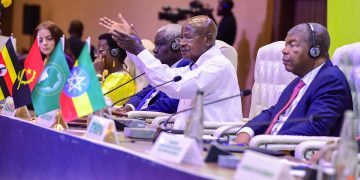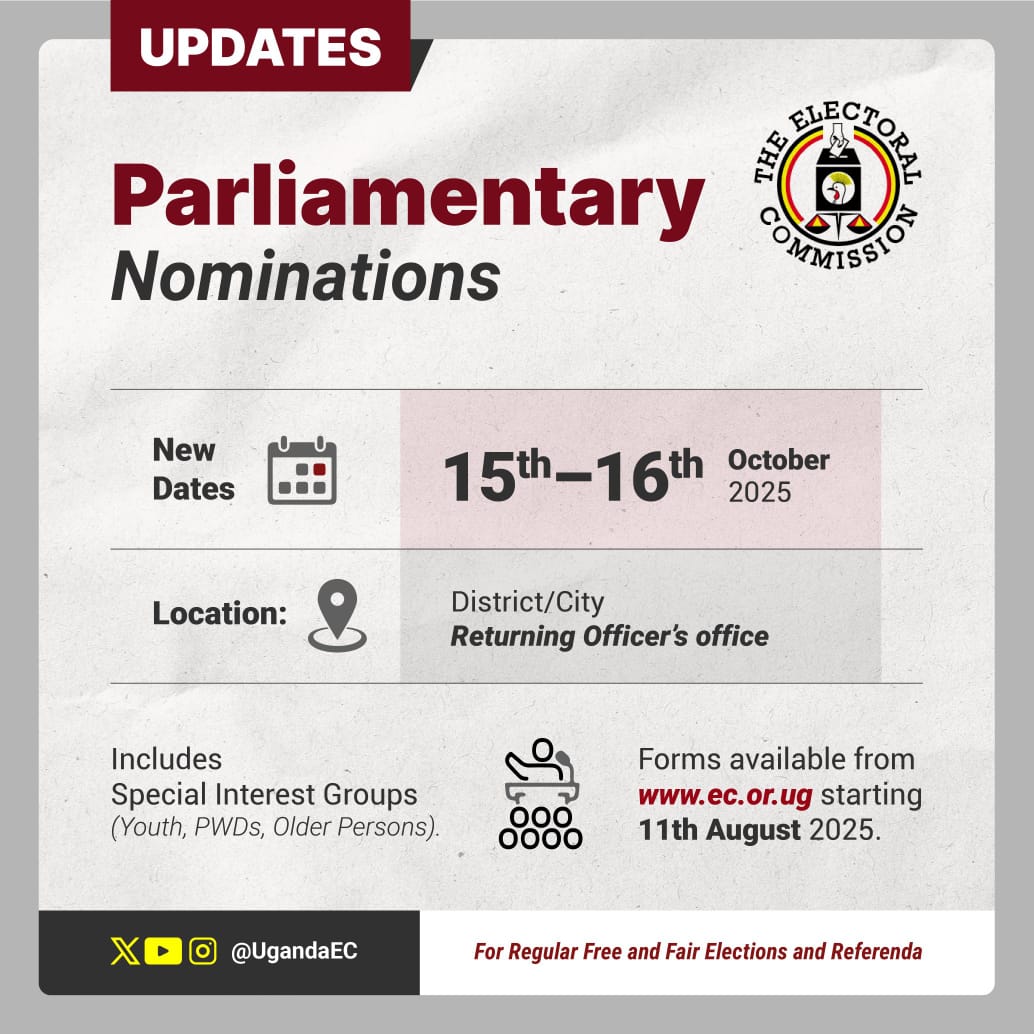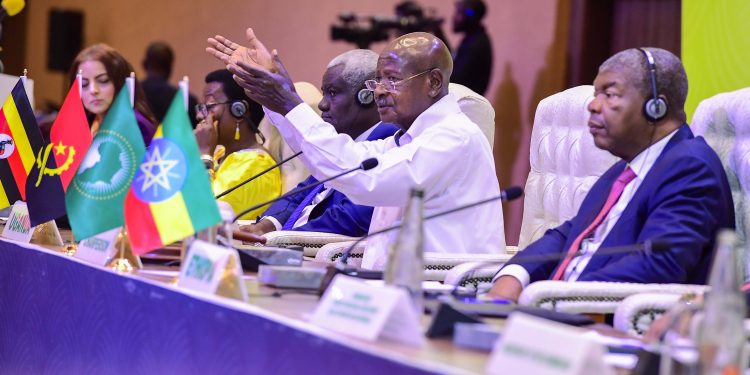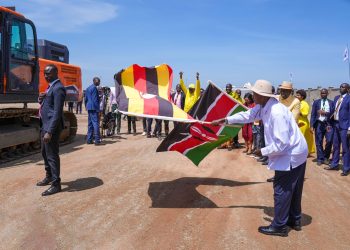The President of Uganda has expressed that the African continent has a significant opportunity to emerge as an economic powerhouse through agriculture.
During his opening speech at the extraordinary summit of the African Union for Heads of State and Government held at the Munyonyo Commonwealth Resort in Kampala, Gen. Yoweri Kaguta Museveni Tibuhaburwa attributed Uganda’s advancement in modern, commercial farming to agricultural innovations.
He reflected on the journey since the 1960s, when their political Movement began as a Student Movement, recognizing that Uganda, situated near the Equator, could thrive and prosper by focusing on four key economic sectors: commercial agriculture, manufacturing, services, and ICT.
He pointed out that back then, only 9% of households participated in what was termed the “enclave economy,” a narrow colonial cash economy characterized by a small area of modernity surrounded by widespread underdevelopment.
He explained that then, all agricultural and mineral products were primarily exported as raw materials, with minimal processing, aside from some efforts from the Nytil textile factory.
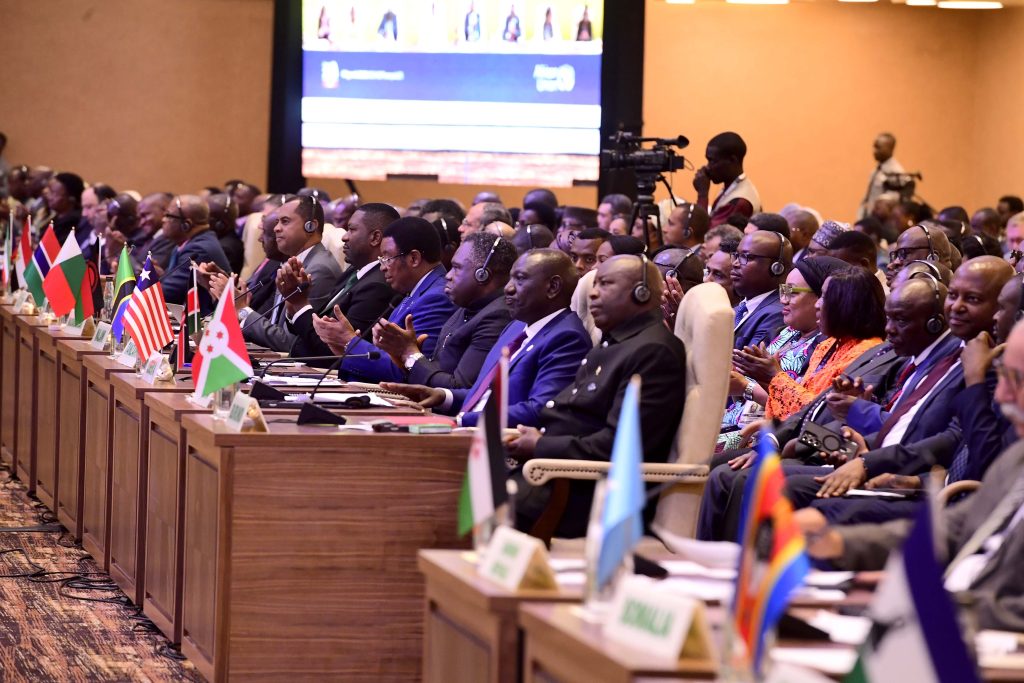
Museveni emphasized that fully commercialized agriculture is essential for achieving food security and ensuring stable incomes for households.
He mentioned that in 1996, his government pinpointed seven enterprises for intensive agricultural development: coffee, fruits, dairy products, food crops for family consumption on four acres, poultry for eggs, pig farming in backyards, and fish farming for those living near wetlands, specifically on the edges rather than in the center.
“In our calculation, crops like cotton, tea, maize, sugar-cane and enterprises like ranching etc, could only make money for the family, when they are done on a medium or large scale,” he explained.
He observed that a number of Ugandans have started incorporating crops such as palm oil, cocoa, and cashew nuts into the existing list of four high-value crops that can yield substantial income for families, even when cultivated on just one acre.
However, he emphasized that engaging in certain intensive agricultural ventures requires inputs derived from broader agricultural products.
“To produce poultry feeds, animal feeds for pigs, fish meals etc, you need maize, sugar by-products, etc. If you are to import all these, it may render your products uncompetitive. After waking up our people as to the crucialness of Commercial agriculture and rationalizing it, we, then, realized the danger and the unfairness of confining ourselves to just producing raw-materials for other Countries, far away, to transform into finished products,” he noted.
“A kilogram of coffee may give us US $2.5 as a raw-material. However, the same Kg, roasted, ground into powder and packaged, will give the cleverer foreigners who add those steps abroad, US $ 40,” he noted.
He noted that under such a system, Africa has become a significant donor to regions of the world overseen by more shrewd individuals.
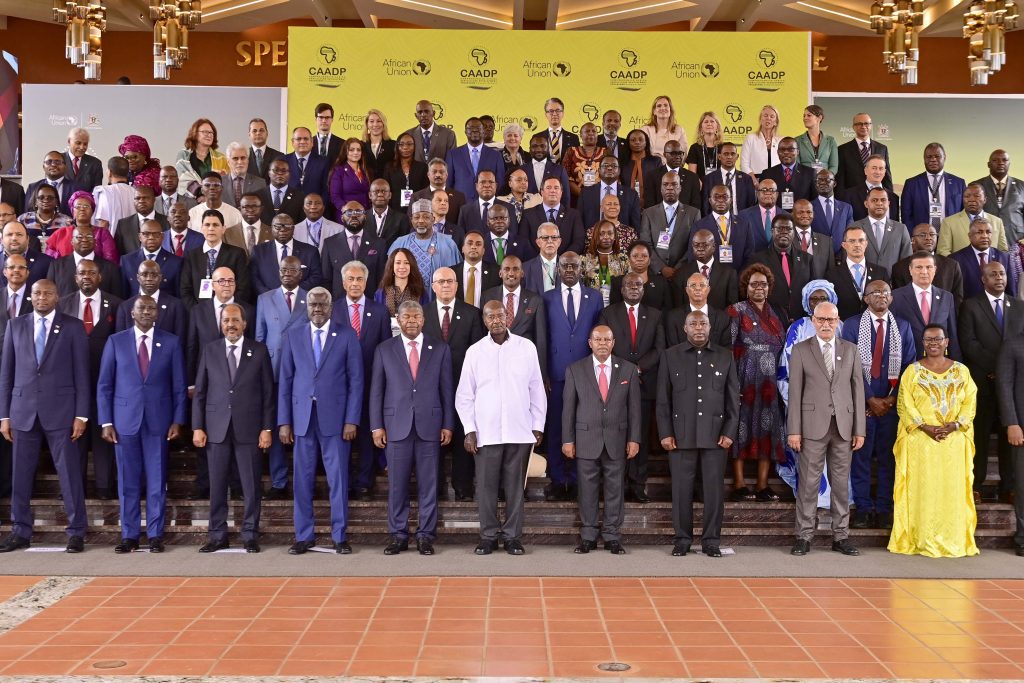
He pointed out that Africa not only suffers financial losses per kilogram of coffee but also faces job losses.
He emphasized that the roles of roasting, grinding, and packaging are filled by the children of foreign nationals, while African children tragically risk their lives crossing the Mediterranean in search of a better future in Europe, fleeing the poverty of their homeland.
“The battle for value addition, has been a big one because there are lobbies that want to keep Africa as a raw-materials producing Continent. In Uganda, we have moved in some areas –a bit in textiles, a lot in dairy products, a lot on fish, a lot on sugar, a bit on maize, a bit on leather, a bit on furniture and wood-products, etc,” he said.
President Museveni explained that adding value to agricultural products promotes vertical integration within the agricultural sector, connecting everything from the garden to the dining table and extending to the farm-to-wardrobe concept for clothing and footwear.
He also emphasized that this approach fosters horizontal integration with other sectors, such as manufacturing and services.
“How can you say that you are promoting tourism, when all the food the tourists eat, is being imported? In Uganda, the hotels serve Ugandan liquid milk, yoghurt, butter, sugar, fruits, beef, etc. On account of reasons I cannot understand, some Ugandans insist on eating, wheat bread and rice,” he noted.
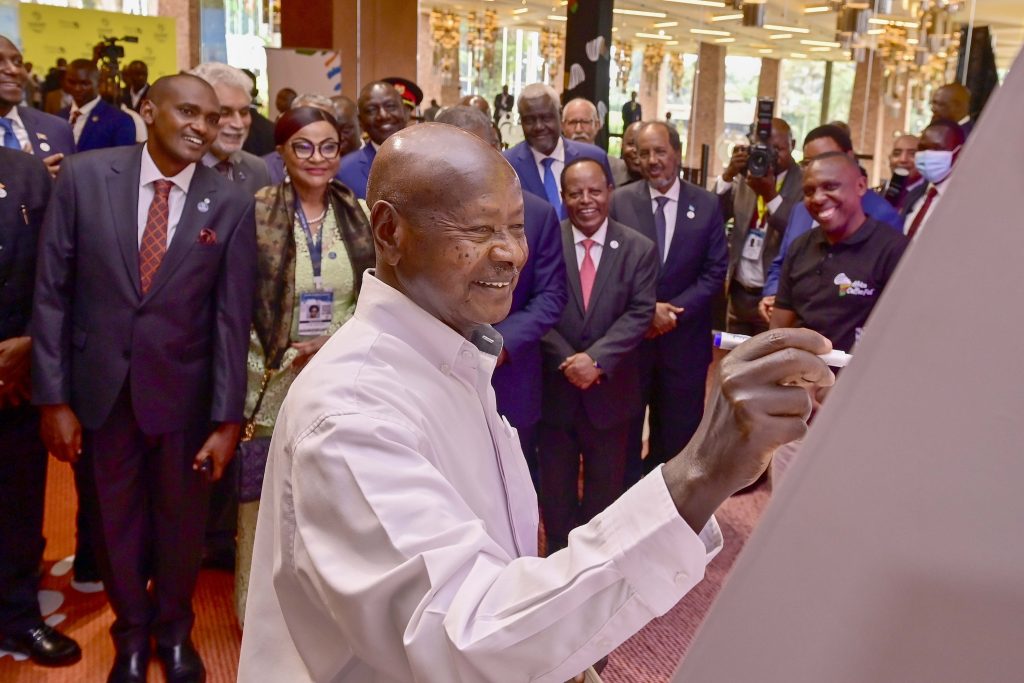
He boasted: “At 80, i enjoy a variety of meals including cassava, millet, and meat a few times a week, along with milk for my coffee and bananas. I also have G-nuts occasionally, peas, beans, fruits, and other products, all sourced from Uganda. It’s the consumers of bread and rice who drive our food imports. I don’t eat chicken, pork, or eggs, as my roots are in the savannah, though those foods are plentiful here.”
He elaborated that in Uganda, the hospitality sector is closely linked to the agricultural sector, with the exception of rice and wheat.
Museveni emphasized that to propel Uganda’s agriculture towards socio-economic transformation, moving from traditional practices to modern commercial farming, they have actively engaged and educated the populace to shift from subsistence farming to a more calculated, profit-oriented approach.
“67% of the homesteads in Uganda are now in the money economy for the first time in human history,” he added.
He observed that at the time of Independence, merely 9% of the population participated in the money economy, and by 2013, this figure had only risen to 32%.
“That is why, I had to involve the Army to distribute seedlings. I was begging these villagers to get out of poverty,” he added.
Museveni emphasized the need for increased investment in scientific research to produce high-quality seeds.
He highlighted the importance of educating farmers on optimal agricultural practices such as proper spacing, mulching, and water conservation.
Additionally, he stressed the necessity of effective disease control measures, including immunization and pest spraying, to ensure food safety against aflatoxins.
He also warned against land fragmentation due to inheritance, as it leads to land with disabilities (LWD), rendering it unsuitable for various enterprises due to its reduced size. The President believes that by implementing these strategies, Africa can emerge as an economic superpower.
“Since ancient times, this part of Africa had strong agriculture. We always have two harvests in a year –the harvest of Katuumba –the season of March to end May and the big harvest of August to December,” he added.
Water problems, trade barriers
He also raised concern over the water for livelihood and for production the need for removing the Non-tariff barriers in the Continental Free Trade Area (CFTA).
“Uganda is lucky in that we have a lot of water. Our major problem is to persuade our uninformed or misinformed People, by guiding them to stop undermining our water resources by encroaching on the wetlands, the forests, the catchment areas, the River banks and the Lake shores. Some other parts of Africa, however, are not so lucky,” he noted.
He noted that in the Nile Valley, they are always arguing about the 85 billion Cubic metres of that river at Khartoum.
“In the past, I posed a question to Dr. Boutros Ghali of Egypt the following questions: Are you aware that the Congo River has 3000 bn cubic metres of water per annum going into the Atlantic Ocean? Is the Atlantic Ocean thirsty for water? Why doesn’t Africa discuss with our brother People of Congo about how this massive water that is not used, could help the water–stressed parts of Africa? Is Africa aware of the technology of de-salination? De-salination happens in nature, done by the sun evaporating ocean water into vapour that, eventually, becomes rain. Why doesn’t Africa intensively study this? If the cost of de-salination goes down, Egypt and the other coastal Countries, will become up-stream Countries while we that harbour the origin of the Nile will become down -stream Countries,” he noted.
On the issue of Non -tariff barriers (NTBs), he said there is no doubt that they undermine the advance of agriculture in Africa.
Uganda easily produces all types of agricultural products: maize, sugar, milk, beef, poultry products, etc, but the internal market is not enough.
However, the President noted that production is disrupted when in some years, and some of the brother Countries say they have bumper crops and delicense Ugandan products. “Why do you delicense product from a brother Country? If you have a bumper crop, let the products compete. After the Ugandan product has been delicensed, then you hear that the delicensing Country has now a shortage of this or that. Can they now import it from Uganda? By that time the Ugandan farmers have been rendered bankrupt and have migrated to new products such as coffee that are, mainly, bought by foreigners, away from Africa,” he noted.
He wondered how African agriculture will sustainably advance, with such erraticness.
